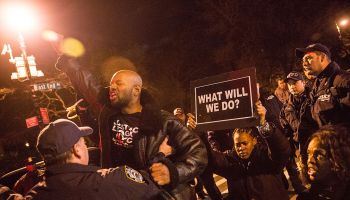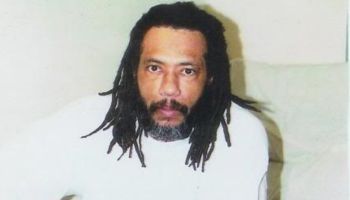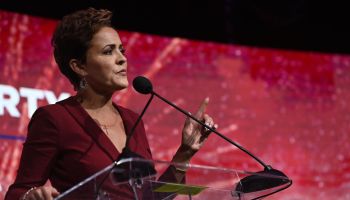Though Black women exhibit leadership in many areas, they are woefully underrepresented in the field of politics. Since March is Women’s History Month, right now presents a prime opportunity to explore the reasons why. With Barack Obama in the White House, one major barrier has already been broken; who’s to say that someday soon, a Black woman might not break down yet another? Click here to learn more about Women’s History Month. – NewsOne Staff
From The Root:
When Ayanna Pressley decided to take a shot at a seat on the city council in her adopted hometown of Boston, Mass., she was committed to winning by any means necessary. This meant cashing in her 401(k) retirement plan—earned over 16 years as a Democratic operative in Boston and in Washington for Sen. John Kerry and other lawmakers. With a mother needing regular care, chasing a job that depended entirely on her willingness to, say, shake hands outside Fenway Park, her run was something of a gamble. “I know what it is to live in the margins; I know what it is to feel that your government doesn’t reflect you, represent you, or advocate for you,” Pressley—whose investment paid off with a win in November 2009—says today. “I was unafraid.”
Fearlessness is what it takes for a woman to run for elective office, especially a black woman. In his official proclamation designating March Women’s History Month, President Barack Obama noted that America “must correct persisting inequalities” facing women in every sphere of life, such as making less money and having greater family burdens than men.
Text continues after gallery …
These inequalities have an impact on representation in the public sphere. Women are only 17 percent of the United States Congress, with the 21 African American, Hispanic and Asian females comprising only 4 percent. The number of black women in Congress has flat-lined since 1992, the so-called “Year of the Woman”: There were 11 black women in 1992; 13 in 2002, and only 13 today.
“It is definitely more complicated running for office as a woman,” says Andrea Dew Steele, founder of Emerge America, a nonprofit that trains women for political leadership. “We don’t feel as qualified as men; we’re not recruited in the same numbers; we feel turned off by the mechanics; we have persistent family barriers, and we don’t have the same networks as men.”
Those networks and social supports make a difference. Obama might not have been able to make his first runs for the Illinois statehouse and Congress without the stability of a two-income home and a wife who also took care of the kids. But according to the Joint Center for Political and Economic Studies, black women, especially since the 1970s, have traditionally had fewer of these support systems—and are more likely to be the single breadwinners in their household.
RELATED STORIES
Meet Mia Love, Utah’s First African-American Mayor
First Black Woman N.J. Attorney General To Be Sworn In Today
















